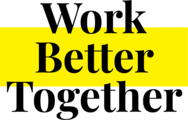
Show up as a human
What good governance really takes:
A personal view from the board table
I've been in the business of governance, in various roles, for over twenty years. Today I run my own practice called Work Better Together, and it’s built around two main areas. The first is governance consultancy, where I work with boards—often charitable—that are at a point of transition, stuck in the weeds with BAU, or facing a strategic impass. My role is to help boards lift their gaze, define their responsibilities and to embed clear processes so they can govern with confidence. Too often, being in leadership roles, or on the board, means our focus is on what’s already been. We can spend all our time looking backwards to review compliance, track outputs and identify trends that have already happened. On the motorway of governance, effective boards prioritise looking out the front windscreen more often than the rear view mirror — and my role is to make sure that happens.

The second part of my business is coaching and professional supervision, plus teaching others how to supervise. I support senior leaders, managers, directors and business owners to embed strategic professional reflection into their work. That includes celebrating achievements, identifying dilemmas and creating a clear path for action.
Why governance matters so much in the not-for-profit space
At its core, the board's job is to ensure the organisation meets its charitable objectives and/or strategic direction while passing the solvency test. The board must give the leadership team the right amount of challenge and add extra value through generative conversations which build beyond our individual opinions. Good governance ensures the organisation is effective and efficient, while maintaining the social licence to practice – culture is set from the top.
But that’s not always easy. In not for profits, the lines can blur between management and governance. People might wear multiple hats, which makes it easy to confuse business operations with board roles. That has to be teased apart. If you’re a trustee, you need to be clear what hat you’re wearing in the governance discussion, as this will inform your contribution and lens and may even impact on your conflicts of interest.
Good governance also depends on a firm grasp of fiduciary duties. That means understanding your financial and legal responsibilities. If you’re on a board, you need to know how to hold the organisation to account—legally, financially, strategically. It’s more than having some spare time and good values alignment with the work done. If you want to volunteer your time in the organisation, that is such a valuable role. But going onto the board? You may be a volunteer (or even paid) but you also carry the liability of the decisions you make.
And don’t underestimate the stakes. It’s a hard environment out there right now and some organisations may be skirting around insolvency—and their boards don’t even realise it. That’s why doing your due diligence is critical. Before you say yes to any board, understand what you're stepping into and what you're liable for.
A good trustee is more than just a good person
First off, a good trustee is someone who shows up and does the work. You need to be an active contributor. You also need passion—not just for governance in general, but for the specific cause the organisation represents. That connection drives commitment
A good trustee is willing to speak up. You're ready to have hard conversations as well as celebrate wins. You bring the skills and knowledge you’ve gathered over your life—career-based or otherwise—but you also know when to set that aside and show up differently. There’s a saying in governance: ‘noses in, fingers out’. Many of us come into this because we’re good at the doing, but that isn’t always the board’s role – we’re here to do the sniff test!
It's a team job
You need the right blend of people to generate useful, forward-thinking conversations. One plus one needs to equal three. That means you want diversity of thought—people with different lived experiences, areas of expertise, and ways of thinking. The goal is to avoid groupthink. You want people who can contribute, challenge, listen, and shift their stance based on new information.
The board’s job is to make decisions through two key lenses: first, does this align with the organisation’s mission and values? And second, is it in the best interest of the organisation’s long-term sustainability?
Good boards have members who can bring their knowledge to the table, and then lift the conversation to a strategic level. They also have the ability to step into others’ shoes and consider the issues through multiple lenses. We can’t just expect someone else on the board to do this thinking for us.
- Don’t rule yourself out. Your background or experience might be just what a board needs. Focus on fit: does your experience match what the organisation is looking for?
- Check your capacity. Boards take up more time than you think. Be sure you can give your all—not just at meetings, but in the spaces between them.
- Know your learning edges. Be honest about what you don’t know. Take responsibility for learning what you need, because funding for training is often limited. Buddy up with someone else on the board for your first year and write down the questions you hear asked by experienced members as much as the answers!
- Think strategically. You must be able to shift your gaze from day-to-day operations to the bigger picture—give examples of how you’ve done that in your interviews.
- Align with the values. You may be asked to publicly endorse board decisions. If the organisation’s values don’t sit well with you, think again.
- Show up as a human. Boards are made up of people, not job titles. You’ll get the best outcomes when everyone brings their whole self to the table.



